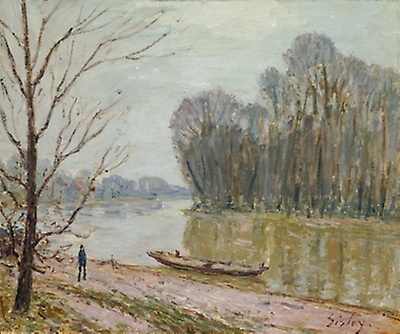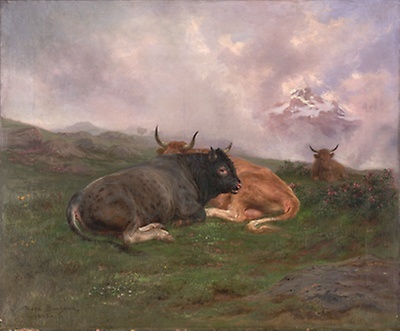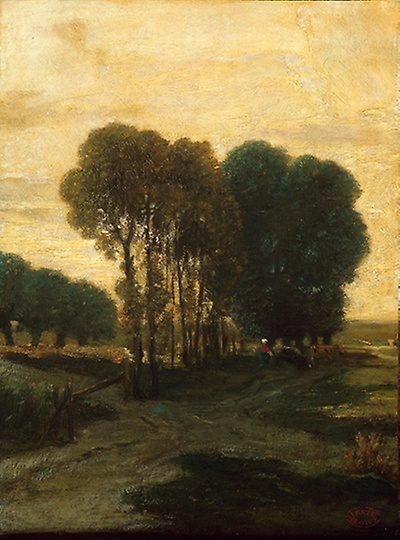Deborah J. Ross's Blog, page 74
December 28, 2018
Short Book Reviews: The Plight of the Oceans Meets The Little Mermaid
The Oyster Thief, by Sonia Faruqi (Pegasus)
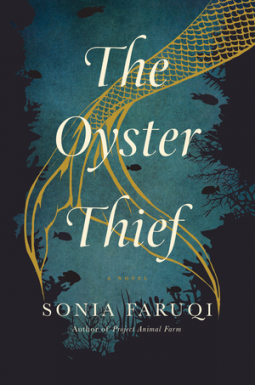
This new take on the classic mermaid love story (which classic? Pick any one, they’re all represented) strive hard to be fresh and charming. For the better part it succeeds, except for a couple of areas. The story pits ocean exploitation against a complex society of vegetarian merpeople who live on various forms of seaweed and have creatures like whale sharks and seahorses as “muses,” personal companions. The naming conventions are often whimsical, especially if you are reading with a dictionary in hand (or, like me, have a dictionary on your e-reader). Parallel plotlines – an apprentice apothecary engaged to the scion of one of the richest merpeople families and the adopted heir to Ocean Dominion, an inventor who’s devised a way for fire to burn underwater – weave together with mystery elements, betrayals and reversals and an ultimately satisfying ending.
The book is not without its shortcomings, however. It’s overlong for the weight of the plot, and many elements of personality, history, and world-building are repeated too many times. But more than that, the author displays a lack of trust in the reader’s perspicacity. Too many elements are first shown as the action unfolds, then told in a ham-handed way that left me feeling as if I were being bashed over the head. As an example, Izar is desperately insecure and eager to win his adoptive father’s approval. I got that from their first interaction. I didn’t need to read:
He would do anything, invent anything, even another moon, to win Anrares’s approval.
“From the company’s very first days, I dreamt of one day plundering the oceans for precious metals and minerals.”[A. Who talks like that? B. Metals are the refined product of minerals, rarely occurring in pure form in a salt-water environment. The book is rife with violations of the principles of physics, chemistry, and biology.]
At the same time, to be fair, the prose occasionally rises above the pedestrian examples above:
Tears trickled from her eyes, water meeting water, salt meeting salt. [Let’s not consider how an aquatic species can weep or how anything can trickle when immersed in water.] or:
He pursued clues, she pursued cures. He kept merpeople safe, she kept merpeople well.
People died in the deep sea not of the darkness outside, but the darkness within.Still, the book merits four stars for its inventiveness and charm. Sonia Faruqi is an author worth watching. I hope that future works from this author will benefit from critical editorial input.

Published on December 28, 2018 01:00
December 27, 2018
Book View Cafe Boxing Day Sale
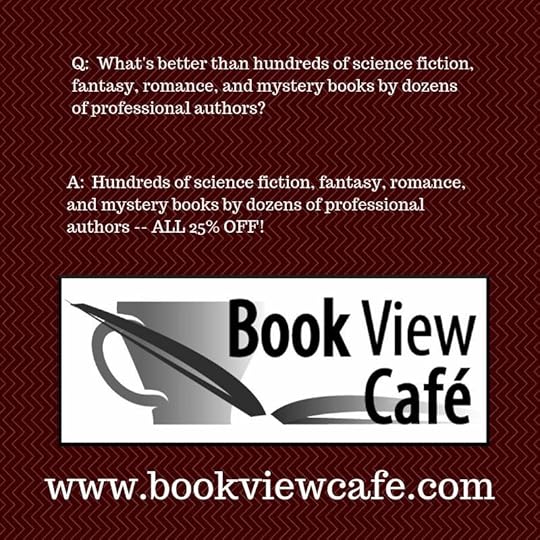
To celebrate the season—and the return of our website—Book View Café is holding a site-wide Boxing Week Sale from December 26 through January 1. Shop on those dates and receive 25% off all bookstore purchases.
The coupon code, 25%BVCSALE, will be automatically applied to your purchase during check-out.

Published on December 27, 2018 01:00
December 26, 2018
Today's Moment of Art
Published on December 26, 2018 01:00
December 25, 2018
Merry Everything and Happy Always
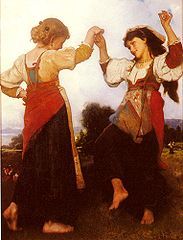 To all my friends, of whatever faith or none, I send you heart-felt wishes for peace and joy, now and in the coming years. Whatever gives you comfort and inspires you, may you receive it in abundance.
To all my friends, of whatever faith or none, I send you heart-felt wishes for peace and joy, now and in the coming years. Whatever gives you comfort and inspires you, may you receive it in abundance.
Published on December 25, 2018 09:27
December 24, 2018
Lace and Blade 5 Author Interview: Shariann Lewitt
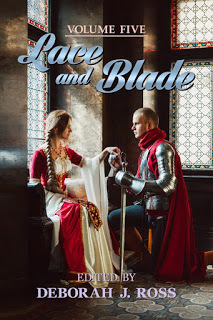 From lands distant or nearby, familiar or utterly strange, historical or imaginary, from ancient times to the Belle Époque comes a treasury of luscious, elegant, romantic fantasy. Come with us on a journey through time and across boundaries, inspired by the longings of the heart and the courage residing in even the meekest person.
From lands distant or nearby, familiar or utterly strange, historical or imaginary, from ancient times to the Belle Époque comes a treasury of luscious, elegant, romantic fantasy. Come with us on a journey through time and across boundaries, inspired by the longings of the heart and the courage residing in even the meekest person.The release date is Valentine's Day 2019, but you can pre-order it now:
Kindle: https://amzn.to/2PBzyj6ePub: https://www.books2read.com/u/bwYJwP
I met Shariann Lewitt at LaunchPad Astronomy Workshop in 2011, and what a delight our friendship has been. She's also a heck of a good writer.
Deborah J. Ross: Tell us a little about yourself. How did you come to be a writer?Shariann Lewitt: I can’t think of when I thought I wasn’t going to be a writer! But I loved too many different things, and I realized that I wasn’t going to earn a full time living writing fiction, so I planned to go to grad school in something Radically Different. I only applied to one graduate writing program—Yale School of Drama. I only knew of one other that carried that level of prestige in the country, and that was Iowa, and, being a born and raised Manhattanite, I had no idea where Iowa was (is?) or how I would get there. Really, I only applied because I expected to be turned down, so I could go on with other things knowing that I didn’t have enough serious talent to pursue professional writing. To the great shock and horror of all my relatives, I got in. The graduate degree didn’t make me a writer, but it did make me employable as a teacher, which does pay an extremely modest rent. Grad school was traumatic and genre fiction was my drug of choice to get through it. In my final year I wrote my first novel as an escape project—and it got published.
DJR: What inspired your story in Lace and Blade 5?SL: My father lived in Japan for several years when he was quite young, before he married my mother. Since I was too young to remember I’d heard about how wonderful Japan is. My father would take out his special box of treasures with his water colored picture of Fuji-san and curling white waves, his dark oiled wood chopsticks, his long silk tassel and little laughing Buddha. He taught me Japanese children’s songs, to eat with chopsticks (as a very young child—my mother hated seeing me eat Lucky Charms with chopsticks and refuse to use a spoon.) And of course, as I got older, I became fascinated with Japanese culture and history.
The basic idea for the story (which I won’t tell because it would be a spoiler) has been with me for a long time. I wrote it once in the very beginning of my career as a short story and then abandoned it because short stories were very hard for me then.
Deborah’s invitation for this anthology came a few weeks after I had returned from a trip to Kyoto with an idea for a novel and a large package of research books on the Meiji rebellion. Before this particular trip I had been more interested in the more distant past; the nineteenth century seemed far too modern for my taste. And yet on that trip I learned a great deal that I had skipped over before because I had thought it too modern and was swimming in research on the particulars of the men—and women!—involved in breaking the Shogun’s death grip on the government. The moment I read that invitation I knew I had to write this story. I already knew Toshiro, who had been in my story decades earlier.
And then the whole story just revealed itself to me. I wrote long form; short fiction is hard for me. But this story came whole as a story, with the characters fully realized and the concept perfectly alive from the moment I began. I have never had an experience writing a story like this one. I was all the reasons I love to write, all the joy and wonder, and for two days I sat and wrote and pretty much ignored everything else in the world.
DJR: What authors have most influenced your writing?SL: Oh my goodness, so so many. Possibly Sophocles above all. No, really, check him out! Greek classical literature has it all. Blood, guts, conspiracy, love, misery, and conflict. On the conflict, the inner conflict, and the pain. If you think it’s all boring people declaiming in long white robes, read the real stuff. Yowah!
More modern writers include Philip K. Dick and Samuel R. Delaney, Shirley Jackson, Yukio Mishima, Alice Walker, Federico Garcia Lorca, William Butler Yeats, Sylvia Plath, Kate Wilhelm—how long can I go on? So many many wonderful writers!
DJR: How does your writing process work?SL: I’m what people call a “pantser” which means that I write by the seat of my pants. Outlines don’t work. I get hold of a character and a situation, find a conflict, and “write for discovery.” Which is to say, I don’t know what the thing is about until I write a first draft. Then I go back and rewrite extensively when I know what really happens in the story. Maybe not the most efficient way, but if I try to figure it out before I start to write, it will all change once I start writing anyway.
DJR: What have you written recently? What lies ahead?SL: I’ve been doing a lot of short stories of late. I’m working on a couple of novels. The kind of hard SF I used to write isn’t popular right now, so I’m moving back into one of my earlier loves, fantasy and historical fiction. I’m currently working on a book set in the late Victorian era with the Order of the Golden Dawn. They were a real magical Order in that time, and William Butler Yeats was a member, so there’s plenty of room for real history to intertwine with magic and actual historical characters to interact with fictional characters.
DJR: What advice would you give an aspiring writer?SL: Don’t give up. Everyone gets lots of rejections; that’s the nature of the trade. You have to pick yourself up and keep going. I give my students the “twenty-four hour rule.” You get to feel sorry for yourself and sensitive and have all the comfort and self pity you want for twenty four hours. And that’s it. Send that story back out again. Back to the keyboard. Keep going. Look up how many rejections Stephen King got. How many publishers rejected Harry Potter.
DJR: Any thoughts on the Lace and Blade series or this being its final volume?SL: Oh no! I love these stories! They’re just so much fun. All the reasons that I love to read fantasy—all the honor and love and twists and turns and just everything I want in a fantasy story! Is there any bribe you could suggest?...
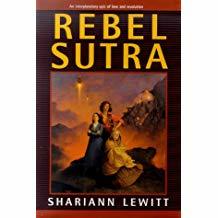 Shariann Lewitt fell in love with all things Japanese as a young girl, the result of her father being stationed in Okinawa during his Army enlistment. She had been mainly fascinated by my earlier and more mythic eras in Japanese history until her most recent visit to Kyoto, when she saw the plaque marking the geisha house that hid several officers of the Meiji Rebellion. That period, being both foundational to Japanese history and modern, is extremely well documented, so she has barely begun research on the subject and has probably gotten a lot wrong. When not consumed with historical research or writing, she teaches at MIT, lives in the greater Boston area, and tries not to drive like a native most of the time.
Shariann Lewitt fell in love with all things Japanese as a young girl, the result of her father being stationed in Okinawa during his Army enlistment. She had been mainly fascinated by my earlier and more mythic eras in Japanese history until her most recent visit to Kyoto, when she saw the plaque marking the geisha house that hid several officers of the Meiji Rebellion. That period, being both foundational to Japanese history and modern, is extremely well documented, so she has barely begun research on the subject and has probably gotten a lot wrong. When not consumed with historical research or writing, she teaches at MIT, lives in the greater Boston area, and tries not to drive like a native most of the time.
Published on December 24, 2018 01:00
December 21, 2018
Short Book Reviews: A Shooter Takes Hostages at an Abortion Clinic
 Jodi Picoult’s latest novel, A Spark of Light, tackles the abortion debate and pulls no punches. The story opens in Mississippi’s sole remaining abortion clinic, where a gunman has killed several people, including the clinic’s owner, gravely wounded several more, and is holding the rest – staff and patients – as hostages. The police negotiator is desperately trying to talk him down before the SWAT team takes control, and also to keep secret his discovery that his own daughter is inside. One of the hostages is an anti-abortion protester who’s gone undercover to try to obtain incriminating evidence of wrongdoing that will shut the clinic down. As if that weren’t dramatic enough, in another part of the state a teenaged girl has been charged with murder after a self-induced abortion through pills she’d bought on the internet.
Jodi Picoult’s latest novel, A Spark of Light, tackles the abortion debate and pulls no punches. The story opens in Mississippi’s sole remaining abortion clinic, where a gunman has killed several people, including the clinic’s owner, gravely wounded several more, and is holding the rest – staff and patients – as hostages. The police negotiator is desperately trying to talk him down before the SWAT team takes control, and also to keep secret his discovery that his own daughter is inside. One of the hostages is an anti-abortion protester who’s gone undercover to try to obtain incriminating evidence of wrongdoing that will shut the clinic down. As if that weren’t dramatic enough, in another part of the state a teenaged girl has been charged with murder after a self-induced abortion through pills she’d bought on the internet.All of this is explosive enough, but Picoult doesn’t simplify, preach, or condescend. Every one of her characters, from the shooter to the spy to the negotiator, to the critically injured doctor and intrepid nurses, to the girl who was at the clinic to get oral contraceptives to the elderly woman facing a terminal diagnosis, come across as people with their own histories, tragedies, and deeply held beliefs. More than that, Picoult leaves the reader to draw their own conclusions from a spectrum of sympathetic but ultimately incompatible agendas.
What happens next is even more challenging to the reader. Instead of moving forward chronologically, each successive section moves us back in time. We see the stage before the events we’ve just witnessed, and the stage before that, and so forth, until the day is ordinary, the work routine, beliefs are yet untested and courage untried. Poignantly, we see the people killed by the shooter as alive and vital. The final section draws together all the disparate threads to make the story whole.
For me, however, the most moving part of the book was the Author’s Note, where Picoult talks about her interviews with people all along the spectrum from opposing abortion under any circumstances to advocating for no restrictions whatever. She points out that a significant number of abortions are done for financial reasons, and offers suggestions for reducing the number by addressing that desperation. Raising the minimum wage and offering government-funded child care and universal health care would all make it financially more feasible to bear and raise children. Discouraging employers from firing or refusing to hire pregnant women is another approach.
Finally she writes,
Honestly, I do not believe we, as a society, will ever agree on this issue. The stakes are too high and both sides operate from places of unshakable belief. But I do think that the first step is to talk to each other – and more important, to listen. We may not see eye to eye, but we can respect each other’s opinions and find the truth in them. Perhaps in those honest conversations, instead of demonizing each other, we might see each other as imperfect humans, doing our best.

Published on December 21, 2018 09:09
December 19, 2018
Today's Moment of Art
Published on December 19, 2018 01:00
December 17, 2018
Lace and Blade 5 Author Interview: Marella Sands
 From lands distant or nearby, familiar or utterly strange, historical or imaginary, from ancient times to the Belle Époque comes a treasury of luscious, elegant, romantic fantasy. Come with us on a journey through time and across boundaries, inspired by the longings of the heart and the courage residing in even the meekest person.
From lands distant or nearby, familiar or utterly strange, historical or imaginary, from ancient times to the Belle Époque comes a treasury of luscious, elegant, romantic fantasy. Come with us on a journey through time and across boundaries, inspired by the longings of the heart and the courage residing in even the meekest person.The release date is Valentine's Day 2019, but you can pre-order it now:
Kindle: https://amzn.to/2PBzyj6ePub: https://www.books2read.com/u/bwYJwP
Here I chat with Marella Sands about her story, "Spire Witch," and a bunch of other stuff.
Deborah J. Ross: Tell us a little about yourself. How did you come to be a writer?Marella Sands: My fourth grade teacher made us write a story every day. After that, I never really stopped, although it didn't occur to me until I was graduating from college that someone might actually pay me to write. From then on, I tried to figure out how to write at a publishable level.
DJR: What inspired your story in Lace and Blade 5?MS: That's a little tough. The original idea was very different, about an apprentice priestess who was learning how to properly inter the dead of the city, but I never could figure out a plot to go with that character. After several failed drafts, the character changed into a runaway rich girl who merely prayed over the dead and dying, and the story became “Spire Witch.”
DJR: What authors have most influenced your writing?MS: I'd have to credit my writers group for that. Up until I met them, I hadn't really encountered people in real life who could help train me to be a better writer. As for reading, I grew up consuming vast amounts of fantasy. My father had an extensive SF collection so there were always novels around the house and piling up on shelves. So...I grew up in the milieu and loved to read, but when it came time to writing, it really helped to have people who could show me the ropes.
DJR: What advice would you give an aspiring writer?MS: It's more work than you can possibly imagine, so be sure it's something that really calls to you.
DJR: Any thoughts on the Lace and Blade series or this being its final volume?MS: This is the final volume? Too bad - there are so few places to try to sell one's work. Thanks for the sales :)
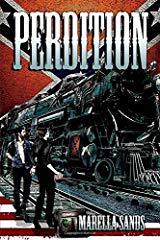 Marella Sands writes that she likes to travel, and in 2018 was able to do some fun things like watch a village cricket match in Cerne Abbas, Dorset; search the Jurassic Coast for fossils; visit the Phallological Museum in Reykjavik; and stand in the crack between the Eurasian plate and the North American plate in Thingvellir National Park, Iceland. She, like most writers, has more writing projects on her desk than are really good for her sanity.
Marella Sands writes that she likes to travel, and in 2018 was able to do some fun things like watch a village cricket match in Cerne Abbas, Dorset; search the Jurassic Coast for fossils; visit the Phallological Museum in Reykjavik; and stand in the crack between the Eurasian plate and the North American plate in Thingvellir National Park, Iceland. She, like most writers, has more writing projects on her desk than are really good for her sanity.
Published on December 17, 2018 01:00
December 12, 2018
Today's Moment of Art
Published on December 12, 2018 01:00
December 10, 2018
Lace and Blade 5 Author Interview: Harry Turtledove
 From lands distant or nearby, familiar or utterly strange, historical or imaginary, from ancient times to the Belle Époque comes a treasury of luscious, elegant, romantic fantasy. Come with us on a journey through time and across boundaries, inspired by the longings of the heart and the courage residing in even the meekest person.
From lands distant or nearby, familiar or utterly strange, historical or imaginary, from ancient times to the Belle Époque comes a treasury of luscious, elegant, romantic fantasy. Come with us on a journey through time and across boundaries, inspired by the longings of the heart and the courage residing in even the meekest person.The release date is Valentine's Day 2019, but you can pre-order it now:
Kindle: https://amzn.to/2PBzyj6ePub: https://www.books2read.com/u/bwYJwP
With typical modesty and succinctness, Harry Turtledove responded to my questions as follows:
Deborah J. Ross: Tell us a little about yourself. How did you come to be a writer?Harry Turtledove: I wrote. Eventually, people started buying stuff. It was more enjoyable than working in Dilbertland, so I kept at it.
DJR: What inspired your story in Lace and Blade 5?HT: I was thinking about correspondences between lands and sovereigns. Once I had the idea of both going wrong at the same time, the story came pretty easily.
DJR: What authors have most influenced your writing?HT: L. Sprague de Camp and Poul Anderson.
DJR: What’s the most memorable fan mail you’ve ever received?HT: There was the fellow named "Thorstein" (I'm changing it) who complained that no one named Thorstein was ever a heroic figure. I have thus far resisted the impulse to name a child-molesting axe murderer Thorstein, but I still may yield to it one day.
DJR: How does your writing process work?HT: I do first drafts in longhand, which saves me a lot of rewriting. Then I clean things up on the computer and submit.
DJR: What have you written recently? What lies ahead?HT: I just sold a novelette about evolved dinosaurs to ANALOG, and have another under submission there. I'm also working on a new Hellenistic historical after a long hiatus.
DJR: What advice would you give an aspiring writer?HT: Write. Finish. Submit. Keep submitting. Keep doing all that stuff. It's how you learn your licks.
DJR: Any thoughts on the Lace and Blade series or this being its final volume?HT: The series has been highly enjoyable. I wish there were more.
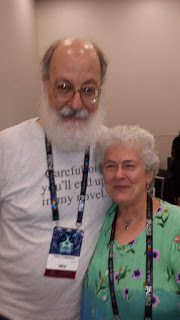 Harry Turtledove says he is an escaped Byzantine historian. He has made a poor but none too honest living writing fantasy, science fiction, and, when he can get away with it, historical fiction. Being named “The Master of Alternative History” by Publisher’s Weekly has not impacted his modesty in the least. He lives in Los Angeles with his wife — fellow writer Laura Frankos (who is equally but differently delightful) — and three overprivileged cats. Three daughters and two granddaughters round out the brood. If you like, he can annoy you on Twitter @HNTurtledove.
Harry Turtledove says he is an escaped Byzantine historian. He has made a poor but none too honest living writing fantasy, science fiction, and, when he can get away with it, historical fiction. Being named “The Master of Alternative History” by Publisher’s Weekly has not impacted his modesty in the least. He lives in Los Angeles with his wife — fellow writer Laura Frankos (who is equally but differently delightful) — and three overprivileged cats. Three daughters and two granddaughters round out the brood. If you like, he can annoy you on Twitter @HNTurtledove.I should add that he's very tall. Or I'm very short.

Published on December 10, 2018 01:00

